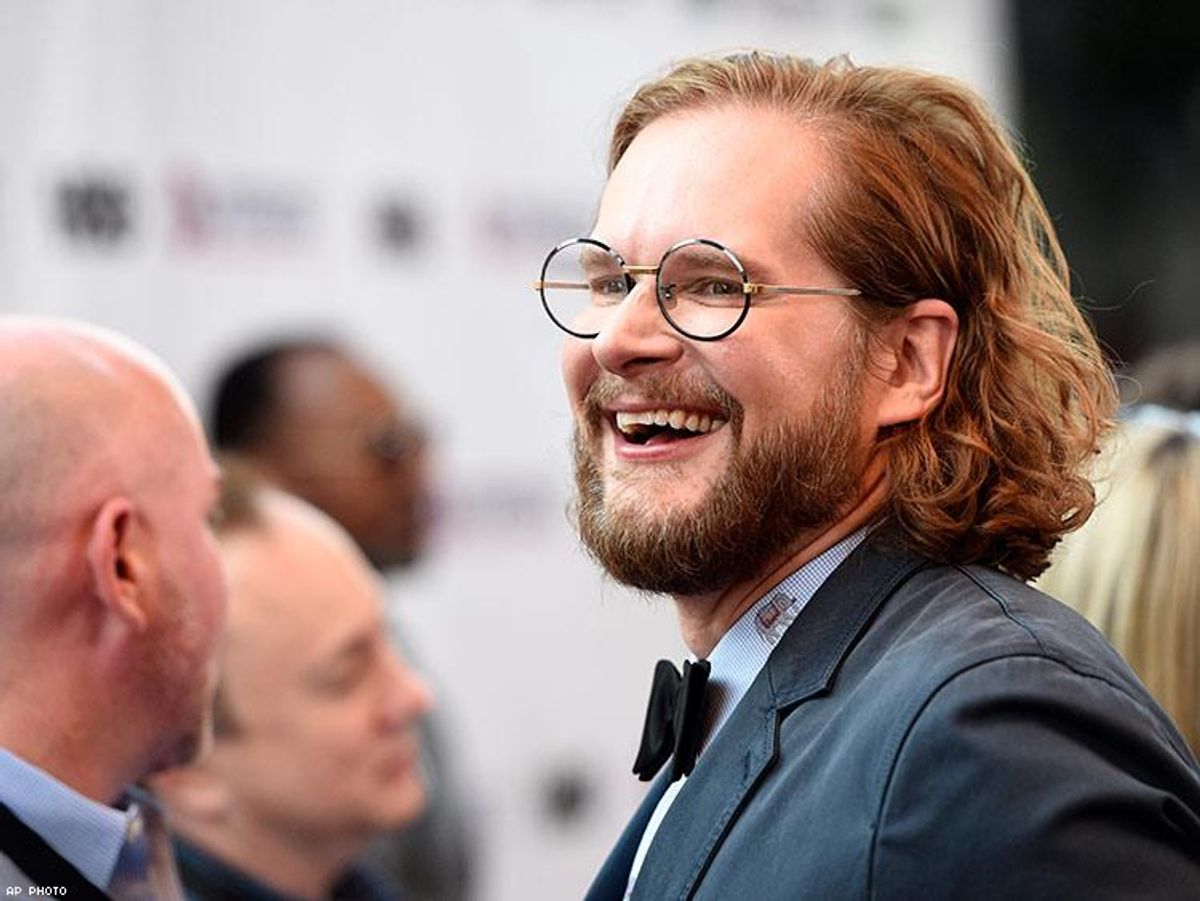Bryan Fuller endured over a decade of being "hetwashed."
The gay producer revealed that, until Starz's American Gods, he had not succeeded in putting an out gay character on television. This is not for a lack of trying. At the Thursday opening of the Outfest Film Festival, where he was being honored with the Outfest Achievement Award, Fuller said gay characters on shows he created or cocreated -- Dead Like Me, Wonderfalls, and Pushing Daisies -- had been routinely turned straight by various forces in Hollywood.
"The first show I created was called Dead Like Me. And it was about a young woman named George who was dead and becomes a grim reaper. As a proud homosexual, I wanted to represent queer characters," Fuller told the audience at the Orpheum Theatre in downtown Los Angeles. "George's father was gay. And as a product of a gay person who bred despite better instincts, George's life was a greater miracle, and that she lost it so young, an even greater tragedy. Mandy Patinkin's monologue would write itself. Except it didn't. The studio and the showrunner made the character straight, and I was powerless to stop them."
This trend continued in Fox's Wonderfalls (2004), a series he cocreated with another gay man, Todd Holland. In this show, Fuller said he planned for a Republican lesbian character played by Katie Finneran to "discover she got pregnant when she scissor sisters her girlfriend after she had sex with her ex-husband. It would write itself. Except it didn't. We couldn't show lesbians kiss, much less imply they had sex, much less scissor sister sex with semen."
Fuller used the term "hetwashed" to describe how a character's gay identity on NBC's Heroes (2006-2010) -- a show he briefly worked on as a producer -- was erased, after the actor's management threatened to pull him from the series. He noted that the actor would late come out.
After being "thwarted" by Hollywood multiple times, Fuller decided to create what he called his "gayest" show, Pushing Daisies, another series featuring a woman with a masculine name, Chuck, who comes back from the dead. "You didn't know how gay Pushing Daisies was because the gay was never sexualized. It was simply queer," said Fuller, who credited gay icons like Kristin Chenoweth, Swoosie Kurtz, and Beth Grant for "saturating every fiber" with queerness. (Chenoweth introduced Fuller Thursday evening and presented him with the award.) Fuller said Pushing Daisies was "systemically gay, aesthetically gay, but not narratively gay."
In NBC's Hannibal (2013-2015), Fuller said he succeeded in homoeroticizing his lead character, Hannibal Lecter, adapted from the Thomas Harris novels. But he did not manage to "homosexualize him."
But finally, Fuller was able to feature gay characters in American Gods, the acclaimed Starz series adapted from the Neil Gaiman novel of the same name. In the series, there is groundbreaking episode of television -- a love scene between two Middle Eastern men: Salim (Omid Abtahi) and the Jinn (Mousa Kraish). The latter is a genie, in keeping with the fantastic premise of the series. The pair have sex in a moving and passionate encounter, which achieves an almost religious quality, in part thanks to stunning CGI effects of stars, space, and fire. Fuller called it a story "about a demigod giving a man permission to be himself.
"Telling Salim's story isn't the gayest thing I've ever done on TV. It's the most human. Yes there were boners and anal penetration and flaming ejaculation. But it wasn't pornographic, it was art," Fuller proclaimed.
"It was our achievement as a creative community, because telling his story, Saleem's story, met with no corporate obstacles, no personal obstacles, it was simply told as vividly as we could tell it with total support," he concluded. "Good for us. Now that's a queer achievement."
Outfest runs through July 16 in Los Angeles. See highlights here.












































































